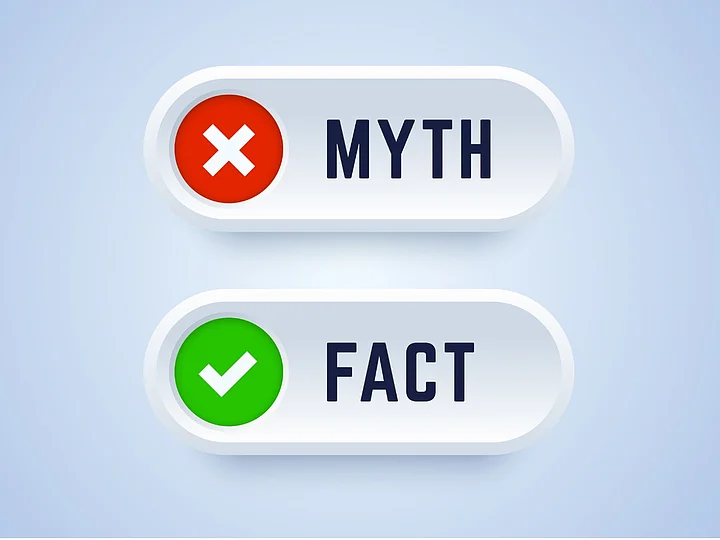A good night's sleep plays an important role in the mental and physical well-being of a person and they should keep a tab on their sleep schedule if they want to have a healthy lifestyle and sleeping routine.
Poor sleep schedule is one of the common problems of today's generation and results in various harmful effects on the body. Some people either fail to sleep or don't know how to fix their sleep schedule.
While sleep is one of the common topics of discussion since people compromise it for their fun or more important work, let's bust a few common sleep-related myths to avoid the misconceptions and wrong information we get to hear.
Adults Need Five or Less Hours of Sleep
It is one of the most common myth that result in adverse, often long-term effects on the health of people. According to the Centers of Disease Control and Prevention (CDC), a person must sleep for 7-9 hours without any disturbance and there's no replacement for the same.
Insufficient hours of sleep increases the risk of hypertension and heart attacks. It reduces cognitive functioning and increases the risk of depression as well.
Timing of Sleep Doesn't Matter As Long as You Get Enough Sleep
According to the Sleep Foundation, dark hours are the best time to sleep because then the body is aligned with its cardian rhythm and internal clock which works according to the environment. It helps the body to have a relaxed and better sleep quality. The long-term changes in the sleep routine can be a cause of depression and diabetes.
Snoring During Sleep Isn't Harmful
Snoring once in a blue moon is not really a problem but if you are a regular snorer, that can disturb others around you and affect your own sleep quality.
According to the Sleep Foundation, snoring every night can be a sign of sleep apnea, which is a serious sleep disorder and is caused because the body is unable to meet the oxygen requirements of the body. There are various nose, mouth pieces, and mouth exercises that can help prevent or reduce the problem of snoring.
Daytime Naps Can Disrupt Your Sleep at Night
According to the doctors of Mayo Clinic, there is no harm in taking naps during the day if you feel tired or need to be refreshed but make sure to select the time and duration for the time wisely. The best time to nap is early afternoon because that's the time when most of the people feel tired and less alert.
Napping is only bad if you try to cope up with the lost sleep with the help of it. Long naps can make you feel sluggish and cranky as well.
Alcohol Makes You Sleep Better
According to the doctors of Cleveland Clinic, alcohol might make you feel sleepy but it cannot be a replacement for a good night's rest, it robs you off the undisturbed sleep causing problems like fragmented sleep, sleep apnea, insomnia, and other sleep-related issues.
This is because when the alcohol begins to metabolize, the sedative effect fades away resulting in on and off sleep. People consuming alcohol in excess might also find it difficult to fall asleep.
(At The Quint, we question everything. Play an active role in shaping our journalism by becoming a member today.)
